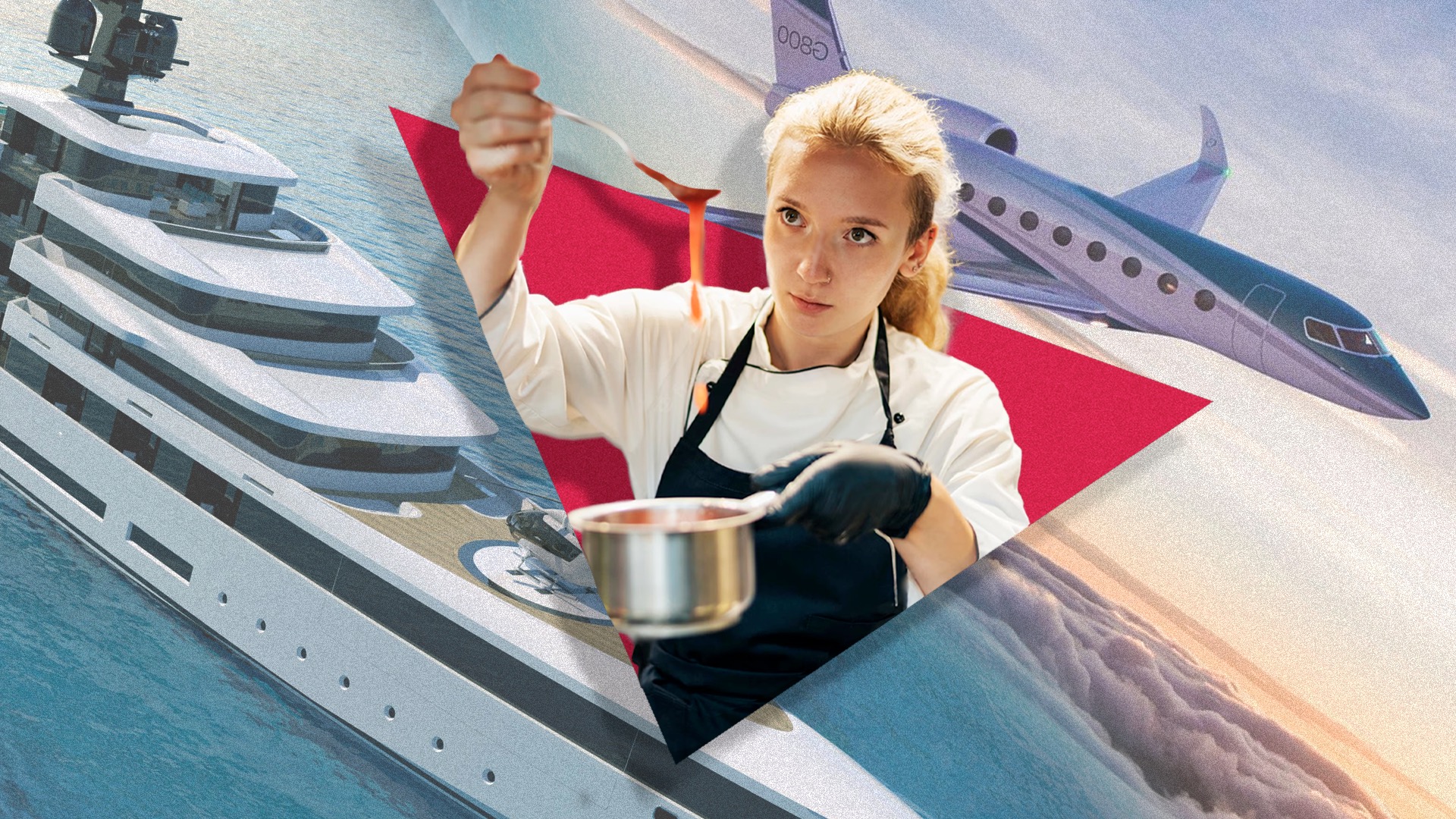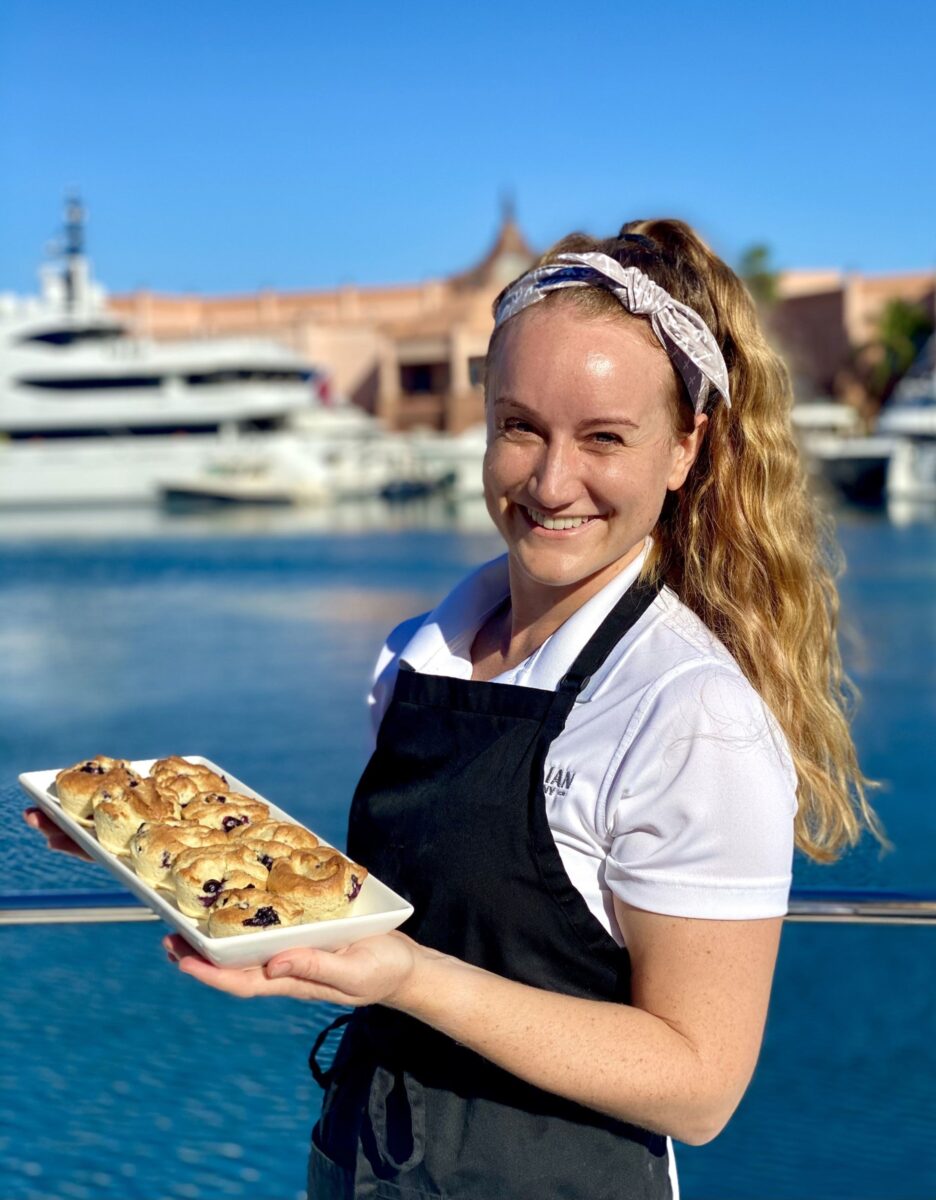
Slaving over a hot stove in a tiny, turbulent cabin, far from home, just to make outrageous dishes for demanding, ultra-wealthy guests? Sounds like a nightmare to us – but for this brave chef, it's a dream come true.
Grace Dvornik, a 31-year-old Florida native who went from being a lowly deckhand to one of the most in-demand superyacht chefs (and now, private jet chefs), explains that while her job is certainly very demanding, it's a dream come true – yet at the same time, it's nothing like what happens on the reality TV series Below Deck.
In an interview with CNN Travel, Dvornik says that the show has definitely seen an influx of people interested in working on yachts, the reality of life on a white boat isn't quite as dramatic.
“It may be a little bit exaggerated... But yes, yacht crew definitely love a nice party and love going out, blowing off steam,” she admits.
“Because a lot of your basic needs are taken care of when travelling – your travel expenses, or your meals while you’re working, things like that – there is extra money to go out and spend on a nice dinner or to go out and have a fun night on the town.”
WATCH a look inside Flying Fox, the world's biggest and most expensive charter yacht, below.
Last year, dmarge spoke with Greg Newby, the director of Superyacht Crew Academy, who revealed to us that while there are definitely miscreants out there (like the cast and crew of Below Deck), the superyacht industry is "not so much the Wild West anymore.
"There used to be fewer rules; more partying. I don’t know how I survived some of it. Now there’s definitely a lot more control over it because you’re talking about partying on these yachts that are travelling in the sea – obviously, there’s a lot of danger to go along with that,” he pointed out.
“Superyachting is a lot more heavily regulated. The rules in place are all there for safety reasons. If you can’t follow those rules then you don’t really last too long. Having said that, it’s still a ‘work hard, play hard’ environment.”
Greg Newby
RELATED: ‘The Chief Stew Jumped Into Bed With A Rapper’: Superyacht Worker Spills Their Wildest Tales
For Grace's part, she's been “contacted by casting and producers many times” to appear on Below Deck, but she says “I’ve always respectfully declined. It’s not my style.”
The reality of being a superyacht chef Grace loves her job. Image: CNN
Grace loves her job. Image: CNN
Dvornik explains that the most difficult part of running a superyacht or private jet kitchen is managing the larder. It's already a logistical challenge to make sure you've got enough food for the right journey. but accommodating for last-minute requests or odd requirements – or as she puts it, "little quirks", is extra difficult.
“I’ve been told before that people are very strict – no desserts, no dairy, no gluten, and then they get on board and because they’re on vacation, they want dessert with every meal or they’re fine with dairy and gluten, so you have to be able to adapt that way,” she explains.
“Even if someone says ‘no desserts,’ I always keep at least ice cream or some type of chocolate on board, because there’s always a craving.”
Grace Dvornik
RELATED: The Worst Kinds Of Superyacht Guests, According To Crew
She also shared some of her strangest requests: no green beans on Thursday, no pineapple in the morning, and grilled meat but with no grill marks. Yikes.
“If someone makes a request, in this type of field, ‘yes’ is the only option – because you want to go above and beyond for the client. And most of the time they’re willing to pay what they need to pay to have those items,” she says.
 The galley on board the Tankoa superyacht Bintador. Image: BOAT International
The galley on board the Tankoa superyacht Bintador. Image: BOAT International
“So it’s, ‘Okay, yes, we can do that. And how can we make it special? Or how can we make it more memorable from the last time.’”
Grace Dvornik
Dvornik also adds that being a chef on a private jet has its own set of challenges. Unlike a superyacht, which will generally have a fairly large crew, on a jet, she's usually the only employee on board other than the pilots – meaning she's not just a chef, but also the chief flight attendant.
There's also a lot less space on a jet, and you're generally not cooking things from scratch: you're normally working with restaurants on the ground and adapting their dishes so that they survive the flight – for instance, if a client wants a steak medium rare, Dvornik might instruct the restaurant to cook it rare so that when she reheats it up in the air, it's not overcooked.
Honestly, we'd be fine with a kettle and some two-minute noodles.
The post Superyacht & Private Jet Chef Reveals What It’s Like Serving The 1% appeared first on DMARGE.
0 Commentaires